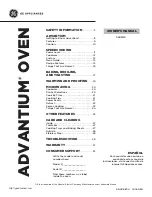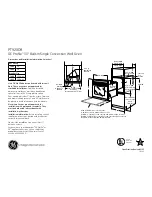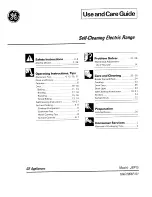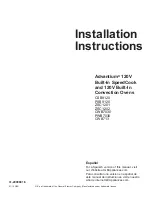
en
Tested for you in our cooking studio
40
Acrylamide in foodstuffs
Acrylamide is mainly produced in grain and potato
products prepared at high temperatures, such as potato
crisps, chips, sliced bread, bread rolls, bread or fine
baked goods (biscuits, gingerbread, spiced biscuit).
Drying
With 4D hot air, you can dry foods with outstanding
results. With this type of preserving, flavourings are
concentrated by the dehydration.
Only use unblemished fruit, vegetables and herbs and
wash them thoroughly. Line the wire rack with
greaseproof paper or parchment paper. Drain the
excess water from the fruit and dry it.
If necessary, cut it into equal chunks or thin slices.
Place unpeeled fruit onto the dish with the sliced
surfaces facing upwards. Ensure that neither fruit nor
mushrooms overlap on the wire rack.
Grate vegetables and then blanch them. Allow the
blanched vegetables to drain off and distribute them
evenly on the wire rack.
Dry herbs on the stem. Position the herbs evenly and
slightly heaped on the wire rack.
Use the following shelf positions for drying:
■
1 wire rack: Level 3
■
2 wire racks: Level 3+1
Turn very juicy fruit and vegetables several times. After
drying, remove the dried products from the paper
immediately.
Recommended setting values
In the table, you can find settings for drying various
foodstuffs. The temperature and cooking time are
dependent on the type, moisture, ripeness and
thickness of the food to be dried. The longer you leave
the food to be dried, the better it will be preserved. The
thinner the slices are, the quicker the drying process
will be and the more aromatic the dried food will
remain. Setting ranges are indicated for this reason.
If you wish to dry additional foodstuffs, you should use
similar foodstuffs in the table as a reference.
Type of heating used:
■
<
4D hot air
Tips for keeping acrylamide to a minimum
General
■
Keep cooking times as short as possible.
■
Cook food until it is golden brown, but not too dark.
■
Large, thick pieces of food contain less acrylamide.
Baking
With top/bottom heating at max. 200 °C.
With hot air at max. 180 °C.
Biscuits
With top/bottom heating at max. 190 °C.
With hot air at max. 170 °C.
Egg or egg yolk reduces the production of acrylamide.
Oven chips
Spread out a single layer evenly on the baking tray. Cook at least 400 g at once on a baking tray so that
the chips do not dry out.
Fruit, vegetables and herbs
Accessories
Type of
heating
Tempera-
ture in °C
Cooking
time in
hours
Pomes (apple rings, 3 mm thick, 200 g per wire rack)
1-2 wire racks
<
80
5-9
Stone fruit (plums)
1-2 wire racks
<
80
8-10
Root vegetables (carrots), grated, blanched
1-2 wire racks
<
80
5-8
Sliced mushrooms
1-2 wire racks
<
60
6-9
Herbs, washed
1-2 wire racks
<
60
2-6





































